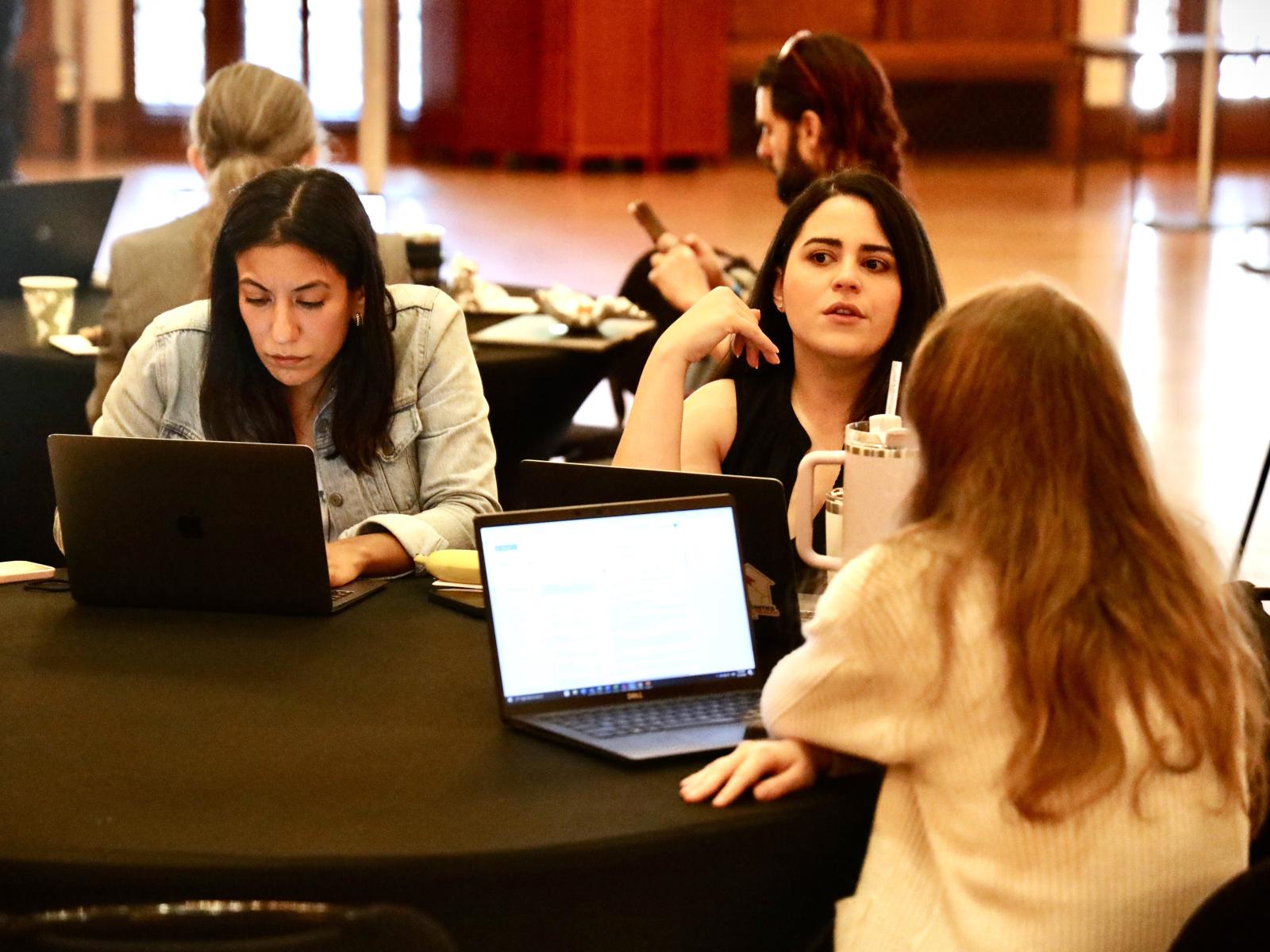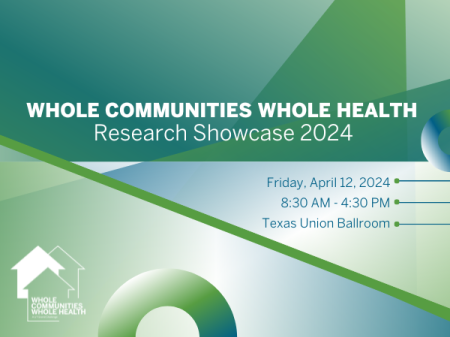
Whole Communities–Whole Health’s annual research showcase is typically a chance for the UT Grand Challenge to show off its achievements from the previous year. This year, however, WCWH’s leaders devoted the morning session to an inaugural flash funding competition they hope will lead to future successes.
WCWH steering committee chair Mike Mackert organized a similar event with the UT Center for Health Communication (CHC) several years ago. Small groups of academics led by principal investigators (PIs) had several hours to collaborate and submit a grant proposal for a small project supplementing or complementing previous research. Normally, the proposal process for a "full-size" grant can take months. In a flash funding competition, the winners are selected by the end of the day.
"I had never organized a flash funding contest before,” Mackert said of his previous work with the CHC. "It struck me as a great way to energize researchers and fast-track some work they want to do. When I became WCWH chair and we started planning the showcase, I was excited to learn it would be feasible for us to try."
Morning Glory
The competition was held in the cavernous Shirley Bird Perry Ballroom in the Texas Union. Some groups arrived promptly at 9 a.m. and got to work as soon as the opening remarks concluded, clustering at several tables, coffees in hand, laptops open, sharing both screens and ideas. Other teams, having prepared ahead of time, filtered in later, pairing up at other tables to iron out details and finalize their proposals.
WCWH leaders, including Mackert, milled about, offering encouragement and answering the occasional question. "I was thrilled at both the number of proposals submitted and the quality of the research ideas," said Mackert, who is also a health communication professor in the Stan Richards School of Advertising & Public Relations in the Moody College of Communication. "My hope was that the flash funding competition would generate new research ideas and get new researchers involved in WCWH, and we accomplished both of those goals."
"My hope was that the flash funding competition would generate new research ideas and get new researchers involved in WCWH, and we accomplished both of those goals."
— Mike Mackert, steering committee chair
Indeed, the review committee was so pleased with the submissions that WCWH leadership doubled the original total amount they had committed to the winners, from $20,000 to $40,000.
And the Winners Are…
Four research groups who submitted proposals were successful. One of those was a project entitled "Supporting Latina Whole Communities-Whole Health Through a Community-based Participatory Mental Health Family Intervention." It will be led by Gabriela Livas Stein, department chair and professor in the Department of Human Development and Family Sciences (College of Natural Sciences), Nelly Salgado de Snyder, distinguished research fellow at the Latino Research Institute (College of Liberal Arts), and Elma Lorenzo-Blanco, associate professor in the Department of Human Development and Family Sciences and faculty scholar in the Population Research Center.
"Our grant aims to use WCWH data to better understand what familial and contextual risk factors are most predictive of depressive symptoms in Latina women participating in the study to help us then design — along with community members — accessible mental health supports targeting these risk factors," Stein said. "We will also be conducting focus groups using photovoice with community members to complement the WCWH data analyses to best understand their mental health needs."
Another winning proposal, "Predicting cardiovascular disease risk in Hispanic/Latino population using a 24-hour blood pressure monitor," also focused on healthcare in the Latinx community. "Currently in our WCWH project we do not have blood pressure measured concomitantly with our sleep and physical activity measures," said Benjamin Baird, research assistant professor in the Department of Psychology (College of Liberal Arts), who will be co-leading the project with Jasdeep Kaur, an assistant professor in the Department of Kinesiology and Health Education (College of Education.) "This is what this project will do by coupling the more accurate 24-hr blood pressure measurement with existing periods of 2-week data collection on participants’ physical activity, sleep and stress."
Pawel Misztal and Juan Pedro Maestre of the Cockrell School of Engineering ("Novel Measurements Phthalate Effect on Fungal Activity and Production of Degradation Products: Implications for Human Health and Community Exposures") and Maria Arredondo (Department of Human Development and Family Sciences and Population Research Center) and Laura Quiñones-Camacho (Department of Educational Psychology) ("Do culturally sensitive parenting programs improve children’s outcomes? A pilot investigation") were the other winners of the competition.
“I'm looking forward to what the funded teams do in the coming years with this support," Mackert said.
Whole Communities–Whole Health is a UT Austin grand challenge research program that takes an interdisciplinary approach to how health data are collected while also engaging communities and participants in the research process.



